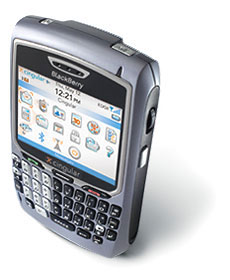Can Google Audio Ads be as easy and effesctive as Google AdWords? That was the question Donna Bogatin (Digital Markets) put to André Bergeron, owner/operator of Babble-On Recording Studios. She wanted “a radio production talent insider take” on how the Google Ad Creation Marketplace will impact the radio advertising industry. Bergeron seems to know what he’s talking about.
“Dollar-A-Holler Radio ads have been around forever. The local Hi-Fi Store owner could always go into the local station and bark off a series of sale prices in shrill tones that would annoy anyone within earshot. This would be no different, really. There is so much more to effective messaging, to branding, to understanding how people listen to the radio than simply writing down “for all your underwear needs” and handing it off to Johnny promo voice to record.
Part of why people can’t stand listening to the radio is the quality of the ads, they’re, by most estimations, shouted, boring, and insultingly simplistic, and, if there are a lot of them, it just magnifies the mind-numbing nature of them.”
I think that sentence really sums it up. That reality will ultimately prove to be The Big Problem for radio going forward. Shitty commercials in an era when we no longer have to listen to them in order to hear the news and music we want.
Andre Bergeron emails an additional thought:
“Throughout a programming day, the station dresses itself with a carefully crafted image using music, personalities, promotions, etc – to create “a brand”, if you will. Then a stopset comes on and it’s like the advertisers are allowed to dress the station in clown’s clothes, leisure suites or horizontal stripes.”

 One ninth-grader (in the WSJ story) says she has caught her parents typing emails on their Treos during her eighth-grade awards ceremony, at dinner and in darkened movie theaters. “During my dance recital, I’m 99% sure they were emailing except while I was on stage,” she says. “I think that’s kind of rude.”
One ninth-grader (in the WSJ story) says she has caught her parents typing emails on their Treos during her eighth-grade awards ceremony, at dinner and in darkened movie theaters. “During my dance recital, I’m 99% sure they were emailing except while I was on stage,” she says. “I think that’s kind of rude.”